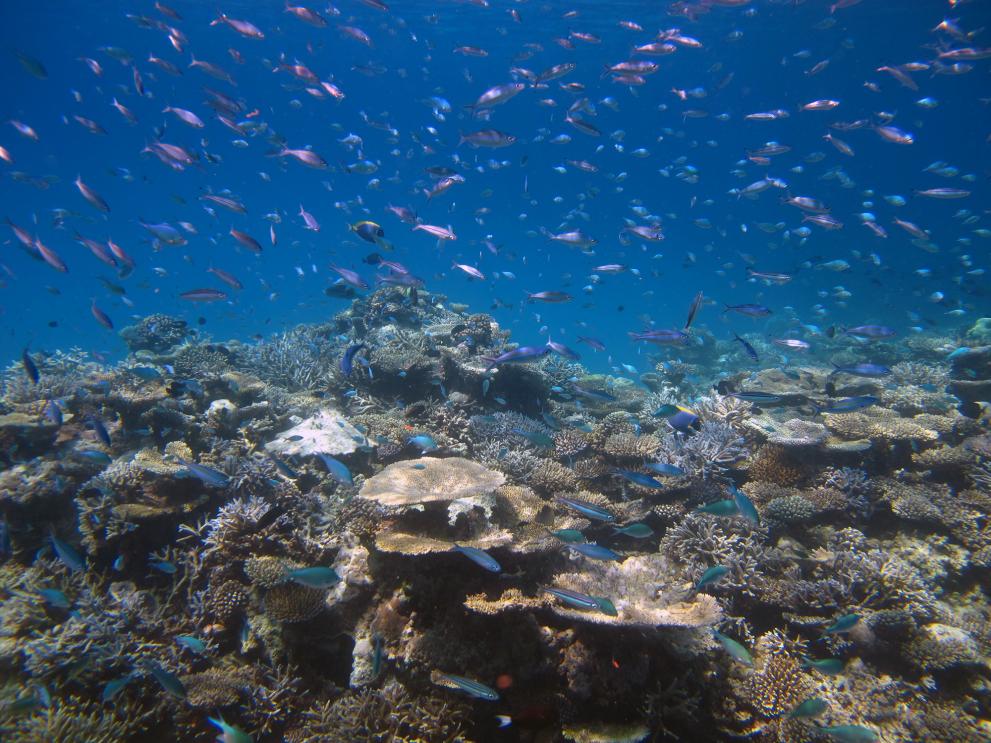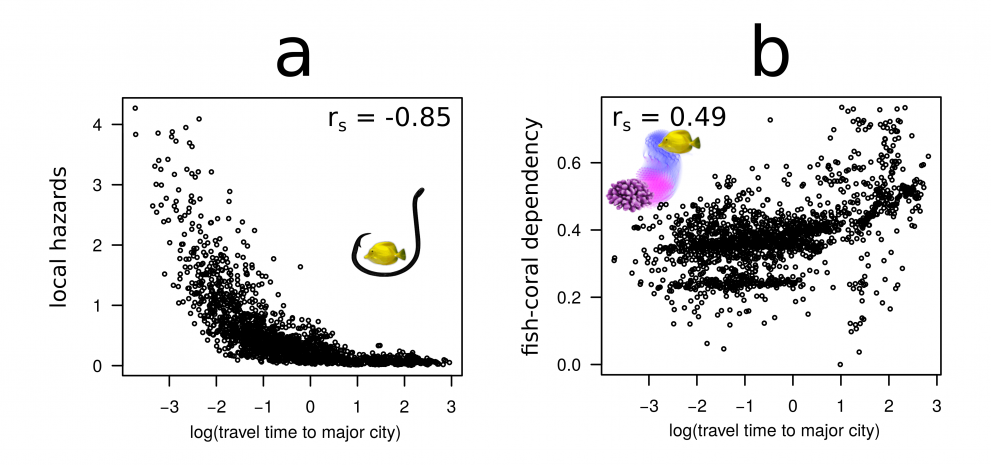
A recent Nature Communications article finds that remote areas are not safe havens for biodiversity as generally thought, and that ecosystems may actually be more vulnerable to risk of extinction the more remote they are from human settlements.
This is likely due to the higher fragility of ecological networks resulting from the increased ecological specialisation of remote communities, which makes them more vulnerable to cascading effects of biodiversity loss.
The article – a result of a University of Helsinki/JRC collaboration on JRC’s Exploratory Research Project EUReefs - shows this to be true for reef fish communities across the globe.
Extending these findings to other ecosystems could indicate that, rather than being safe havens for biodiversity, remote localities might be areas of critical vulnerability and that no place, no matter how remote, is safe for biodiversity.
Based on their findings, the researchers call for a reconsideration of global conservation priorities.
Mapping impact of coral loss on fish species
The researchers combined a massive dataset of fish distribution and ecological traits for more than 9,000 fish species to map the interactions between corals and fish, and those between fish prey and fish predators in all reef localities worldwide.

Their analysis confirmed that coral loss could detrimentally affect around 40% of fish species in each coral reef area, and that the dependency between fish and corals becomes stronger with distance from humans (Fig. 1b).
Novel risk assessment framework
The researchers devised a novel risk assessment framework - applicable to any ecosystem - that combines local anthropogenic impacts (such as overfishing and pollution), global impacts (climate and environmental change) and the risk deriving from ecological interactions.
For reef fish communities, the latter consists of the combination of local risk of mass coral mortality (which depends on water surface temperature and is independent from remoteness) and the degree of fish-coral dependency.
The framework revealed that taking into account ecological dependencies flattens the expected negative relationship between extinction risk for fish communities and remoteness (Fig. 2).

“No place is safe”
When this is translated into spatial planning, for example in identifying risk hotspots, a new picture of the vulnerability of ecosystems at the global scale emerges.
The hotspots of risk to fish communities due to local anthropogenic impacts and global change are almost perfectly complementary with the hotspots of risk from fish dependency on corals.
According to lead author, Giovanni Strona, “This produces a global map of risk to fish communities where no place is safe, regardless of distance from humans (Fig. 3)

Ecological dependencies of growing concern
Co-extinction events - where a species disappears following the loss of other species it depends on - are primary drivers of the ongoing global biodiversity crisis.
The potential risk stemming from ecological dependencies is a major concern for all ecological systems.
Extending the findings of this study to other ecosystems could indicate that remote localities, rather than being safe havens for biodiversity, might be areas of critical vulnerability.
Further information
- Ecological dependencies make remote reef fish communities most vulnerable to coral loss (doi: 10.1038/s41467-021-27440-z)
- A warming ocean could reduce fish species by half
- Contact person: Pieter [dot] Beck
 ec [dot] europa [dot] eu (Pieter[dot]Beck[at]ec[dot]europa[dot]eu)
ec [dot] europa [dot] eu (Pieter[dot]Beck[at]ec[dot]europa[dot]eu)
Related Content
Ecological dependencies make remote reef fish communities most vulnerable to coral loss (doi: 10.1038/s41467-021-27440-z)
Details
- Publication date
- 12 January 2022
